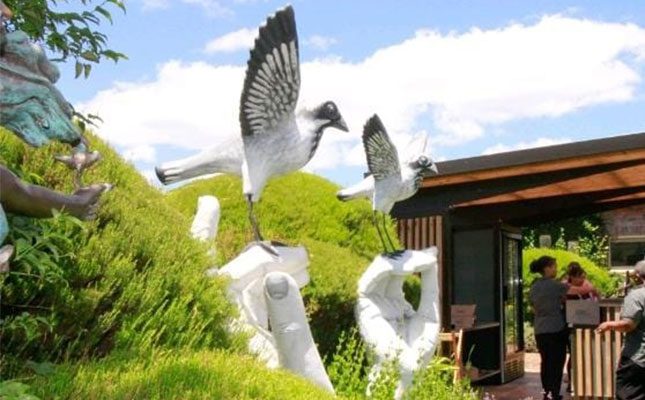
The event brought together delegates from universities and wineries in Spain, Portugal, the Canary Islands, the Czech Republic and Georgia.
Hosted by Stellenbosch University (SU) and the Cape Peninsula University of Technology (CPUT), and funded through the European Union’s Erasmus+ programme, the GastroTour initiative aims to improve training standards in wine and food tourism by developing a dedicated online curriculum.
In addition to curriculum planning sessions, delegates attended lectures and panel discussions, visited local wine farms, and enjoyed a traditional South African braai.
Skills development tool
The programme opened on 17 November at the Stellenbosch Institute for Advanced Study (STIAS), where delegates discussed the transformation of regional wine and food tourism industries. Topics included sustainability, the future of wine and food tourism, and the skills required in the South African wine sector.
In his welcome address, Rico Basson, CEO of SA Wine, noted that the participating countries “not only share similar viticultural histories and traditions, but also a shared ambition for shaping a sustainable wine and food tradition”. He described the project as “an opportunity for peer learning of similar experiences”.
Kachné Ross, people and skills development manager at SA Wine and head of the South African Wine Industry Professional Body (SAWIPB), introduced the organisation’s Learner Management System (LMS).
Available on the SAWIPB website, the LMS provides an industry-aligned skills development tool designed to support career advancement in the wine sector.
Indigenous flavours
A panel discussion led by Elizabeth Colucci of the European-based organisation Obreal, focused on empowering vine-to-table tourism through skills and innovation.
Heidi Duminy, principal of the Cape Wine Academy, said that the academy offers courses on food and wine pairing, while sommelier Gregory Lorimer called for the inclusion of more indigenous flavours and ingredients in food offerings.
Agricultural economist at the SU, Dr Melissa van der Merwe, noted that there is a trend to combine food and wine tourism with learning experiences, wellness, and activities such as mountain biking and yoga retreats.
On identifying the primary training needs in agritourism, there was consensus that the focus is on ‘people’.
Duminy said that wine service training at the Cape Wine Academy has been restructured: “We are starting the course with ‘client service’ rather than the ‘history of South African Wine’.” The importance of identifying what guests value and skills training that focuses on entrepreneurship was also mentioned.
People connect to people
Another panel discussed trends and challenges in agritourism, and it was agreed that food and wine tourism should extend beyond a tasting room. Language was seen as a limitation in describing the flavour profiles of a wine in native languages, but an AI model being developed by Dr Albert Severs of the SU might be able to be used in training programs.
‘Screens’ and keeping the attention of younger wine lovers were identified as other challenges, but ‘managers being present’ and engaging with clients in the tasting room and restaurant were solutions offered by Lorimer.
Elmarie Rabe, chairperson of the SA Wine Routes Forum, mentioned ‘sustainability’ as a driving factor in wine tourism and marketing.
“People want to connect with people, with the wine, and with the land. Regenerative farming and wastewater treatment are management practices that increase the sustainability impact of a brand. Consumers like the millennials and Gen Zs want to feel good about the brands they support,” said Rabe.
Online training
During their visit to the Wellington campus of CPUT on 18 November, the delegates toured the campus and discussed the final modules of the GastroTour learning platform and curriculum. The group is working on an online course in food and wine tourism. This digital educational tool will advance training in, and the transformation of regional food and wine tourism industries.
The GastroTour group also visited the Pebbles Academy in the Hemel-en-Aarde Valley and concluded the three-day GastroTour with a vineyard walk and multisensory food and wine pairing at Creation Wines in the Hemel-en-Aarde Valley near Hermanus.
Get trusted farming news from Farmers Weekly in Google Top Stories.
➕ Add Farmers Weekly to Google ✔ Takes 10 seconds · ✔ Remove anytime






